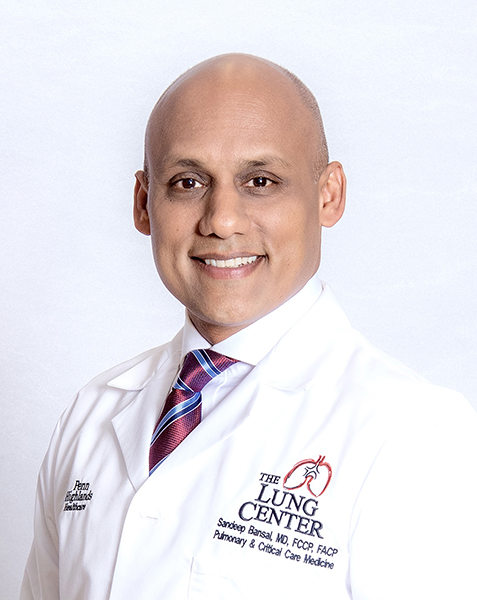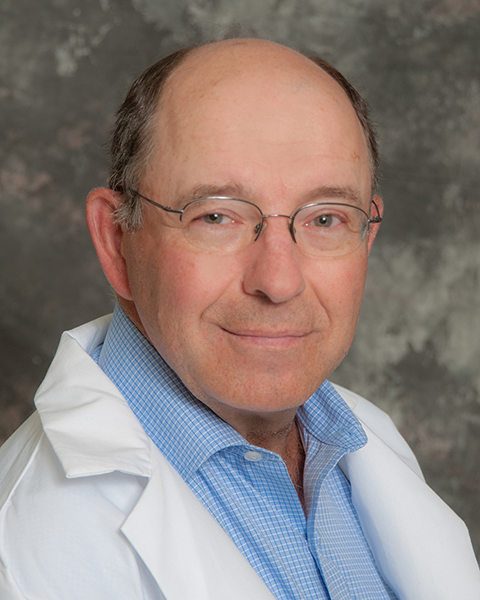
Esophageal Cancer Treated At The Lung Center
When William Wisniewski of Treasure Lake, DuBois, woke up one Saturday in April, he felt disoriented. When he used the bathroom, there were signs he was losing blood from his gastrointestinal tract.
He felt that way Sunday, and Monday, he called his primary care physician. He had an immediate appointment. Perhaps it was an ulcer because he takes over-the-counter pain medications regularly, the doctor said, or a stomach problem. Wisniewski had no other signs of illness. He had no problems eating. He was very active, playing golf daily and bowling three nights a week. He hunted every day he could. Wisniewski was sent to a GI specialist to be sure.
Dr. Richard Latuska of Penn Highlands Gastroenterology performed an endoscopic examination and identified esophageal cancer as the source of Wisniewski’s problems.
There was a 6-centimeter tumor near the junction of his esophagus and stomach. Latuska speculated that there had been a slight bleed cause by the esophageal tumor. Thank goodness it showed up.
After the diagnosis of esophageal cancer, Dr. Rodney Landreneau was consulted. He is a board-certified thoracic surgeon at The Lung Center of Penn Highlands DuBois
Landreneau explained that a minimally invasive surgical would be used. A few one inch incisions into the abdomen and the chest would be used to remove the esophageal cancer and to reconnect the upper esophagus and stomach.
Landreneau suggested a minimally-invasive, videoscopic-assisted surgical approach to removal of the tumor. This surgical approach is similar to the minimally-invasive one-inch incisional approach to gall bladder and female pelvic surgery done today.
Wisniewski’s health was assessed by Dr. Sandeep Bansal, medical director of The Lung Center at PH DuBois, and his clinical team. He was felt to be fit for the surgical procedure.
The day before his surgery Wisniewski played golf. “One of the best rounds of year,” he said. He still didn’t feel like a sick man.
Landreneau was the first in the western hemisphere to perform this minimally-invasive surgical approach to esophageal cancer more than 20 years ago. He also has one of the largest experiences with this minimally-invasive surgical management of esophageal cancer in the country. Prior to Landreneau joining Penn Highlands a year ago, he was a senior leader of the esophageal and lung cancer teams of both UPMC and the Allegheny Health network of Pittsburgh for over the last three decades.
This is an important new accomplishment of the Penn Highland’s Health system – “excellent care closer to home,” according to Michelle Smith, assistant vice-president of the Physician Network at Penn Highlands.
This is also important because there were 16,910 new cases of esophageal cancer in the U.S. this year, according to the American Cancer Society. That’s a lifetime risk of about one in 125 men and one in 435 women.
Signs of esophageal cancer not specific to esophageal cancer, according to the American Society of Clinical Oncology, and they don’t always occur. They are: difficulty and pain with swallowing, particularly when eating meat, bread or raw vegetables; pressure or burning in the chest; indigestion or heartburn; vomiting; frequent choking on food; unexplained weight loss; coughing or hoarseness and/or pain behind the breastbone or in the throat.
The following factors may raise a person’s risk of developing esophageal cancer:
• Being between age 45-70;
• Being male as men are three or four times more likely to develop it;
• Tobacco use in any form;
• Alcohol use;
• Having Barrett's esophagus, a condition that develops in some people who have chronic gastroesophageal reflux disease (GERD) or inflammation of the esophagus called esophagitis;
• Eating a diet that is low in fruits and vegetables and certain vitamins and minerals can increase a person's risk of developing esophageal cancer;
• Being severely overweight;
• Having accidently swallowed lye at some point in life;
• Having achalasia, a condition when the lower muscular ring of the esophagus does not relax during swallowing of food.
Wisniewski isn’t a drinker, smoker or overweight. His only risk was that he was male and his age.
Although Wisniewski experienced a minor leak from his connection between his esophagus and stomach after his surgery, overall, his postoperative course went well. This contained leak resolved very early. Landreneau was pleased with Wisniewski’s clinical course.
This was the first minimally invasive esophagectomy successfully performed in the region, and the first of the Penn Highland system. “Without the excellent physician and nursing care given our patient by our caregivers of Penn Highlands, this would have not been possible!” Landreneau affirmed.
To be sure all the cancer cells are gone, he was sent to medical oncology at Hahne Regional Cancer Center for follow up treatment and care.


